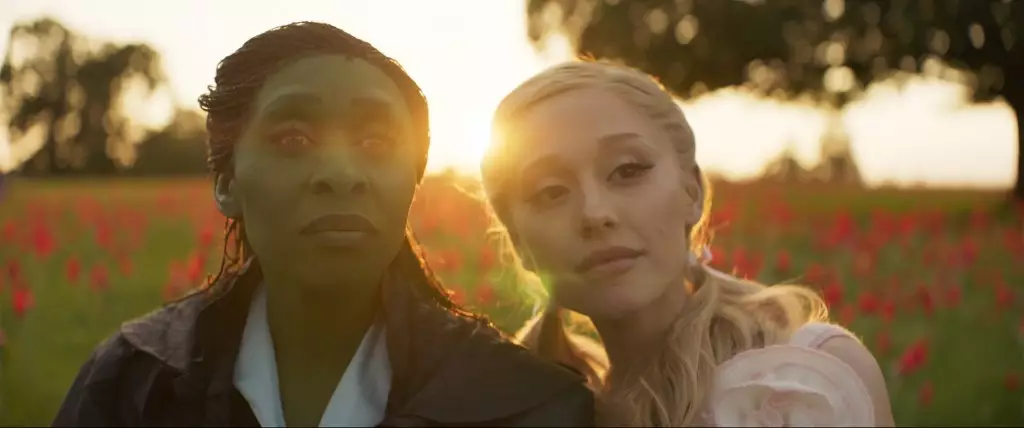In a remarkable turn of events, the film adaptation of the acclaimed Broadway musical Wicked has shattered records, achieving the title of the highest-grossing Broadway musical movie in just its first week on Premium Video On Demand (PVOD). Universal Pictures announced that the film, directed by Jon M. Chu and featuring popular stars Cynthia Erivo and Ariana Grande, managed to accrue an astonishing $70 million in its initial seven days of availability, following its release for home viewing on December 31.
Notably, Wicked’s first day alone brought in an impressive $26 million, marking the most lucrative debut day for any Universal film that has had a premium release format. This figure not only highlights the film’s overwhelming popularity but also sets a new benchmark for future titles within the industry. Comparatively, this figure is double the earnings of Universal’s next closest competitor, the Super Mario Bros Movie, suggesting a surge in familial engagement for Wicked over the holiday season.
Prior to the PVOD release, Wicked enjoyed a 40-day window exclusively in theaters — a strategy that paid off handsomely. Universal has traditionally opted to release major titles for home viewing after the fifth weekend, but in Wicked’s case, the studio smartly decided to extend this timeline, positioning the film as a premier New Year’s Eve entertainment option. This strategic decision not only enriched Wicked’s theatrical presence but ultimately fueled a strong word-of-mouth campaign that contributed to its outstanding financial performance upon release.
With the film set to remain available as a premium offering for an additional two and a half months before potentially streaming on NBCUniversal’s Peacock service, the projections for further revenue growth remain optimistic. The anticipation surrounding Wicked’s PVOD release was further amplified by a well-timed promotional campaign, which included an eye-catching float in the Rose Parade, aimed at capturing the imagination of audiences historically fond of such musical masterpieces.
Wicked’s immense success signals a significant win for the genre of musical film adaptations, potentially paving the way for more Broadway favorites to receive the cinematic treatment. As audiences continue to turn to familiar, nostalgic sources for entertainment, this trend suggests a burgeoning market for theatrical adaptations to thrive in the realm of home entertainment.
The film’s singular achievement not only highlights the viability of the musical genre but also illustrates a shift in consumer preferences, especially during festive seasons. With digital consumption on the rise, Universal’s approach in marketing Wicked superbly aligns with contemporary viewing habits, showcasing how theatrical releases can successfully transition into the home-viewing space.
In essence, Wicked’s record-breaking performance is a sturdy reminder that the fusion of theater and film can create wonderfully lucrative opportunities if executed with a strategic mindset. The industry will certainly be watching closely to see how momentum can be sustained, and which other beloved musical works might be given the silver-screen treatment in the future.

